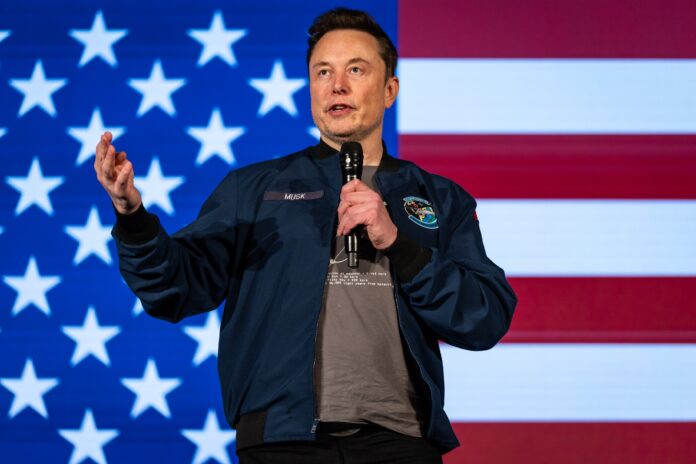A federal lawsuit alleging fraud in Elon Musk’s $1 million PAC voter giveaway was dismissed Monday by U.S. District Judge Robert J. Jonker, who ruled the plaintiffs lacked legal standing to pursue their claims.
The case, Alvarez et al. v. Musk et al., accused Musk, his political action committee America PAC, and two of its treasurers of misleading voters through a promotional $1 million giveaway before the 2024 presidential election. Plaintiffs Robert Alvarez, an immigration attorney aligned with the Democratic Party, and Steven John Robbins, a Republican voter, claimed the program was a fraudulent lottery that favored conservatives.
According to the amended complaint, the giveaway was launched during an October 2024 Pennsylvania town hall where Musk announced daily $1 million awards to voters who signed a petition pledging support for the First and Second Amendments. The plaintiffs alleged the program deceptively gathered personal data under the guise of a fair lottery, while the winners were selectively chosen based on political alignment and other undisclosed factors.
Judge Jonker, however, dismissed the case in its entirety, stating that neither Alvarez nor Robbins demonstrated a concrete injury necessary to establish standing. “Confusion itself is not enough,” the judge wrote, referencing the Third Circuit’s 2023 decision in Huber v. Simon’s Agency Inc. and the U.S. Supreme Court’s precedent in TransUnion LLC v. Ramirez.
Although the plaintiffs argued they suffered a privacy injury by submitting personal data under false pretenses, Judge Jonker found these claims speculative and insufficient. He emphasized that the data collected—phone numbers, emails, and addresses—does not carry a serious risk of harm or identity theft. Furthermore, America PAC’s website clearly stated that personal information would only be used for internal purposes and not shared with unaffiliated third parties.
The two-count complaint, which alleged “fraud by omission” and violations of Michigan’s Consumer Protection Act, was rejected without leave to amend.
The defendants argued throughout the litigation that the $1 million giveaway was never intended to be a random lottery. According to court documents, recipients were selected based on criteria such as their personal stories, geographic proximity to PAC events, and potential as effective spokespeople—not political affiliation alone.
This Michigan case is one of several legal challenges to the giveaway. A putative class action with similar allegations is currently pending in the Western District of Texas. In a separate lawsuit, Philadelphia District Attorney Larry Krasner attempted to halt the program, claiming it constituted an illegal lottery. That motion was also denied in October 2024 by a Pennsylvania state court.
Attorneys for the plaintiffs include Jason J. Thompson, Kevin J. Stoops, and David R. Parker of Sommers Schwartz PC, along with Elizabeth A. Fegan and Megan E. Shannon of FeganScott. Defendants are represented by Charles R. Spies, Robert L. Avers, and Daniel C. Ziegler of Dickinson Wright PLLC, and Andy Taylor of Andy Taylor & Associates PC.



